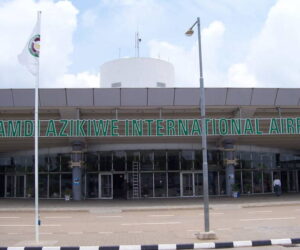On October 1, 1960, Nigeria raised its green-white-green flag and entered the community of nations with boundless optimism. It was Africa’s most populous country, endowed with oil, gas, fertile land, and an energetic people.
Sixty-five years later, the nation celebrates with mixed emotions. There is pride in progress made, especially in communications, financial reforms, and political resilience.
But there is also disappointment over missed opportunities, chronic under-performance in human capital, and persistent governance challenges.
The Success Stories
1. Debt Relief and Fiscal Breathing Space
One of the turning points in Nigeria’s economic history was the 2005 Paris Club debt relief. Under President Olusegun Obasanjo, Nigeria negotiated the cancellation of roughly US$18 billion—about 60 percent of its foreign debt stock.
This was the culmination of years of painstaking diplomacy, credible macroeconomic management, and reform momentum led by a strong technocratic team.
The debt deal not only freed fiscal space but also restored Nigeria’s credibility in global financial markets. For the first time in decades, Nigeria was able to plan its budgets without the overwhelming burden of external debt service.
The lesson here is that credibility and reform discipline can unlock opportunities beyond domestic politics.
2. The Telecoms Revolution
If any reform illustrates the transformative power of liberalisation and competition, it is the telecommunications revolution of the early 2000s. The introduction of GSM licensing in 2001–2002 turned Nigeria from a country of fewer than one million phone lines into Africa’s largest mobile market.
Today, Nigeria has more than 170 million active mobile subscriptions and over 100 million internet users. The ICT sector consistently contributes between 10 and 12 percent of GDP, and in some quarters it has approached 20 percent.
This revolution reshaped society: farmers in remote areas can now access markets by phone; young Nigerians have built businesses and careers in fintech, e-commerce, and the creative industries; and political mobilisation has been transformed by social media. The secret of this success was simple but profound: clear regulation, private investment, and fair competition.
3. Financial Reforms and Institutional Innovations
The financial sector has also seen landmark reforms. The 2004–2005 banking consolidation under Central Bank Governor Charles Soludo forced banks to increase their capital base from ₦2 billion to ₦25 billion.
This triggered a wave of mergers, reducing fragility and creating stronger financial institutions capable of larger-ticket lending. Later reforms introduced the Bank Verification Number (BVN) in 2014, which improved customer identification and reduced fraud, and the Treasury Single Account (TSA) in 2015, which centralised government revenues and closed loopholes for leakages.
Together, these reforms strengthened confidence in the banking system and improved fiscal transparency. Importantly, they were institutionalised rather than politicised, and this explains why they have endured across multiple administrations.
4. Peace Dividends in the Niger Delta
Another moment of progress came in 2009, when President Umaru Musa Yar’Adua introduced the Niger Delta Amnesty Programme. For years, militant attacks had crippled oil production and threatened national stability. The amnesty programme, though imperfect, pacified the region and stabilised oil output. For a time, revenues increased, and the government could breathe easier. The lesson here is that dialogue and political bargains, though costly, can buy stability in strategic sectors.
5. Infrastructure and Rail Connectivity
For decades, Nigeria’s railways were a symbol of decay. But in the past decade, new standard-gauge lines have revived the sector.
The Abuja–Kaduna line, opened in 2016, and the Lagos–Ibadan line, completed in 2021, have become lifelines for commuters, easing road congestion and providing safer alternatives.
These projects, financed through sovereign loans and executed with consistency across administrations, show that infrastructure renewal is possible when there is political will and financing discipline.
Where Nigeria Fell Short
1. Oil Dependence and Policy Whiplash
Despite repeated diversification rhetoric, oil has remained Nigeria’s Achilles’ heel. For decades, oil accounted for over 80 percent of government revenue and more than 90 percent of foreign exchange earnings.
This dependence left the country vulnerable to price swings and discouraged investment in other sectors. Policy reversals—such as frequent changes in foreign exchange regimes—added to investor uncertainty.
The passage of the Petroleum Industry Act (PIA) in 2021 was supposed to be a turning point, but implementation has been slow and contested. Rent-seeking behaviour, overlapping institutions, and political resistance have undermined its potential. The story of oil is thus a story of squandered opportunity.
2. The Power Sector Crisis
Perhaps the single greatest constraint to Nigeria’s development is the chronic failure of the power sector. Despite an installed capacity of over 13 gigawatts, the grid delivers only about 4.5 to 5 gigawatts on most days—barely enough for a city like London.
Gas supply constraints, dilapidated transmission lines, tariff shortfalls, and massive debts have kept the sector in perpetual crisis. The result is predictable: industries run on expensive diesel, households rely on generators, and the economy bleeds productivity.
3. Human Capital Deficit
Nigeria’s greatest resource—its people—remains underdeveloped. Life expectancy, at 54 years, is among the lowest in Africa.
The World Bank’s Human Capital Index suggests that a Nigerian child born today will reach only about one-third of their productivity potential if current education and health conditions persist.
In 2022, the National Bureau of Statistics reported that 133 million Nigerians, or 63 percent of the population, live in multidimensional poverty.
Despite the Universal Basic Education Act of 2004, millions of children remain out of school. Learning outcomes are weak – most 10-year-olds cannot read a simple passage.
In health, underfunding has left primary healthcare facilities under-resourced and ill-equipped. These figures tell a stark story: without investing in its people, Nigeria risks squandering its demographic dividend.
4. Inflation and Social Pain
Reforms in 2023, including the removal of petrol subsidies and the unification of foreign exchange rates, were necessary to restore fiscal stability. But without adequate social protection, they triggered inflationary shocks that eroded purchasing power and deepened hardship.
Food insecurity rose, protests flared, and trust in government weakened. The lesson is that even sound reforms must be sequenced with buffers—such as cash transfers, targeted subsidies, and food logistics—to protect the most vulnerable.
5. Weak Execution and Abandoned Plans
From Operation Feed the Nation in the 1970s to the Vision 20:2020 strategy, Nigeria has produced countless blueprints.
The problem has rarely been the lack of ideas, but rather weak execution, poor monitoring, and the politicisation of programmes. Initiatives often end with the administrations that launched them, creating a cycle of abandoned projects and wasted resources.
Leaders Who Made a Difference
Across Nigeria’s 65-year journey, moments of bold leadership stand out as reminders that decisive choices can shift the nation’s trajectory.
1. President Olusegun Obasanjo’s second administration (1999–2007) championed sweeping reforms that liberalised the telecoms sector, secured historic Paris Club debt relief, and laid the foundation for fiscal discipline. His government showed how credibility and reform momentum could reposition Nigeria globally.
2. President Umaru Musa Yar’Adua, though his tenure was short, made the strategic decision to negotiate peace through the Niger Delta Amnesty Programme of 2009. This reduced militancy, stabilised oil production, and brought temporary calm to Nigeria’s economic lifeline.
Between 2004 and 2015, reformist technocrats quietly reshaped financial governance. The consolidation of banks strengthened the sector, while the introduction of the Bank Verification Number (BVN) and the Treasury Single Account (TSA) curbed fraud, improved transparency, and streamlined public finance.
3. President Muhammadu Buhari (2015–2023) placed agriculture at the centre of his economic diversification agenda. Through initiatives such as the Anchor Borrowers’ Programme, fertiliser reforms, and efforts to expand rice and maize production, his administration sought to boost food security, reduce import dependence, and empower smallholder farmers. While results were uneven, these policies spurred local production and demonstrated agriculture’s potential as a driver of inclusive growth.
4. In more recent years, leaders have also taken politically difficult but necessary steps to remove fuel subsidies, unify exchange rates, and incorporate the Nigerian National Petroleum Company (NNPC) as a limited liability company—measures aimed at strengthening fiscal sustainability and improving transparency.
Together, these episodes highlight a critical truth – Nigeria’s progress has always depended on clarity of vision, credibility in execution, and continuity across political cycles.
Lessons for the Next Decade
The next decade offers a chance to correct course.
1. First, Nigeria must make electricity reform the national mission, just as GSM was two decades ago. Stable power is the foundation of industrialisation and job creation.
2. Second, policy stability must be locked in to end the cycle of uncertainty. Investors, households, and markets need predictability.
3. Third, human capital must move to the centre of planning. Education financing must be tied to measurable learning outcomes, while health funding must guarantee functional primary care.
4. Fourth, industrial policy must be disciplined: focus on a handful of value chains—agro-processing, gas-based industries, and digital services—and tie incentives to performance benchmarks.
5. Fifth, oil reform must be completed. The PIA must be fully implemented with transparency, separating commercial and regulatory roles to avoid conflicts of interest.
Finally, fiscal federalism must evolve so that transfers to states are tied to results in service delivery, not just population counts.
Conclusion.
At 65, Nigeria remains a story of promise, paradox, and possibility. The nation has proven that success is possible – the telecoms revolution, banking reforms, debt relief, and rail projects show what happens when rules are clear, institutions strong, and leadership consistent.
But the failures in power, oil governance, and human capital are reminders of the cost of inconsistency and weak delivery.
The next chapter of Nigeria’s story will be determined not by slogans or plans, but by execution.
If Nigeria chooses courage in reform, compassion in cushioning the vulnerable, and discipline in governance, then the next 65 years will not be marked by unrealised potential but by transformation fulfilled.
Happy Independence Anniversary, Nigeria.








